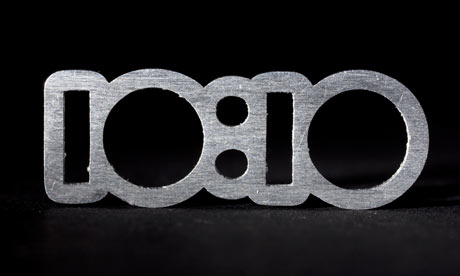
Personal Action - What you can do
Here are a few personal changes you might want to consider. There are loads of webpages and books, with hundreds ideas of things you can do to make a difference. I hope this will highlight some of the more important ideas. Hopefully the information that you have seen so far will give you a good idea about where is best to target your efforts, from reducing car / plane travel to cutting down on the amount of stuff you buy...or maybe you need to find efficient replacement for some of the things that you own.
Driving cars is a big problem. It takes a lot of energy to move a ton of car around, to get you and your luggage from A to B. Try to imagine that you've got a big kettle under the bonnet...your average car (e.g. Ford Focus) does about 44 mugs of tea to the mile!
- Only 15% of a car's lifetime energy footprint is from manufacturing and scrapping (hopefully recycling), the rest is from driving. It is worth getting the most fuel efficient car you can.
- Efficient driving style can make a big difference.
- Low speeds are worst, especially traffic jams and speed humps, so try to avoid driving in the rush hour.
![If lots of people are going in the same direction, maybe they don't all need to be in cars!? [i]](../images/_info.jpg)
- Obviously, the best thing you can do is avoid driving: buses and trains are cool...bikes are better.
Making your house as energy efficient as you can will help a lot.
- Making sure the loft and walls are well insulted is the key, as well as blocking any drafts.
- Turn the heating down as well. Estimates suggest that dropping the temperature by 1ºC will reduce your heating bills (and associated carbon emissions) by 10%, which is about 80 mugs of tea per day (assuming David MacKay's estimate for heating).
- Think about putting on socks and an extra jumper, rather than turning the radiator up.
Choose an electricity supply tariff that supports renewable energy. You can help support the drive for renewable energy supply by applying your consumer pressure.
Avoid flying: keeping a hundred(?) tons of aeroplane in the air takes a bonkers amount of energy. The intercontinental flight example in David MacKay's book (assuming an 80% full plane, return flight, London-to-South Africa) is about equivalent to 360,000 mugs of tea (or me leaving my clock radio on for about 660 years)!
- You might want to check out The man in seat 61 for alternatives to air travel.
Stop living in such a throw-away society. A considerable amount of energy is required to make the things we use. It also takes energy to dispose of (recycle?) them at the end of their lives.
- In David MacKay's research "Stuff" actually made up the biggest part of our average daily energy requirements.
- Buy (demand) things that will last.
- And make sure that they are energy efficient, especially appliances that are going to be using a lot of power during their lives (e.g. your fridge).
- Try buying locally sourced things.
- Remember not to waste water as well. It takes a lot of energy to clean it and pump it around. And (as I well know) it is a very precious resource.
Don't get distracted by the "Green Wash": be careful as you gather information and make choices. The environment is attracting all sorts of businesses, media and public discussion. Amongst all of the good ideas and innovations, you will probably find (or have someone try to sell you) some things are not necessarily helpful.
- Bio fuels are often not a good option (think about the amount of energy farmers use [e.g. pesticides and fertilisers] to grow the crops in the first place, also consider what land the crops are grown on [e.g. rainforest]).
- Poorly placed local wind turbines may not pay for themselves, in terms of energy generated in their lifetime compared to energy required to manufacture...whereas solar water heating might be a good idea!
Don't use patio heaters, they use the equivalent of 500 mugs of tea per hour (Surely they should be banned!) - maybe a bigger coat would be a better idea?
And of course...don't over-fill the kettle, all of these mugs of tea are important. ;o)
More information and campaign groups

Act On CO2 - This is the government sponsored website with lots of ideas t help you cut your energy use. There are links in here to a useful Carbon Calculator, which will help to you understand your carbon footprint. And further links to the Energy Saving Trust, which has even more information, including grants for home improvements.

You may be interested to join the 10:10 campaign. It pushes the simple message: cut your carbon footprint by 10% in 2010. If you haven't done much so far to cut out energy wasting habits, you should find this really easy. I guess the key is not to let it slip when the year is over.
.jpg)
What about carbon off-setting? - This section argues that carbon off-setting is not such a good idea. A quick fix to alleviate your guilt does not encourage you to change your lifestyle. However, if you do have some spare cash to give to a good cause, you might want to think about helping to protect the rainforests.
.jpg)
Return to main Personal Action page

![link to W3C validation website, which will show that the stylesheets are Valid CSS [css]](http://jigsaw.w3.org/css-validator/images/vcss-blue)
![link to information about this website [info]](../images/btn_info.jpg)
![jump up to the top of this page [top]](../images/btn_top.jpg)